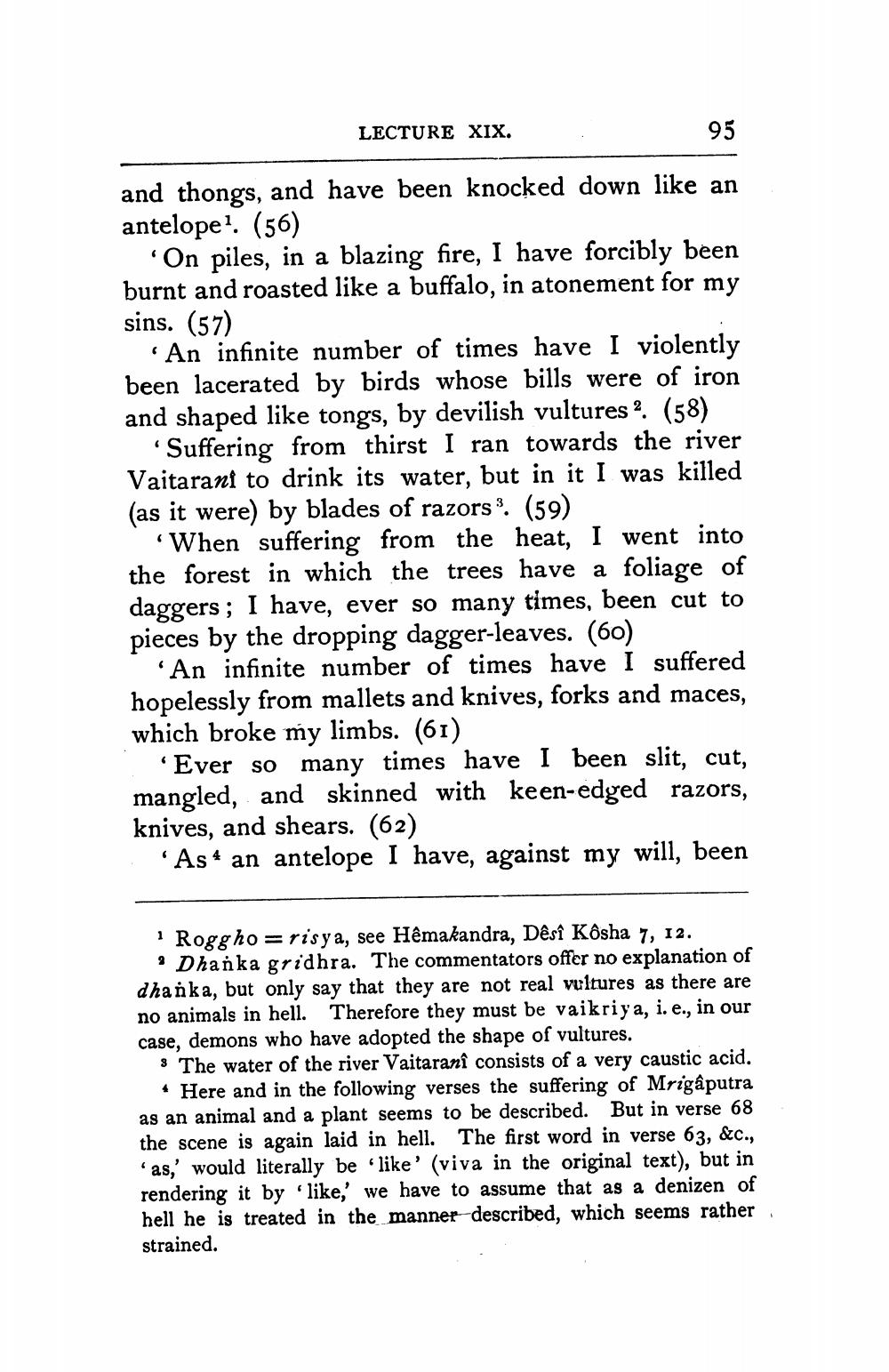________________
LECTURE XIX.
95
and thongs, and have been knocked down like an antelope1. (56)
'On piles, in a blazing fire, I have forcibly been burnt and roasted like a buffalo, in atonement for my sins. (57)
'An infinite number of times have I violently been lacerated by birds whose bills were of iron and shaped like tongs, by devilish vultures 2. (58)
'Suffering from thirst I ran towards the river Vaitarant to drink its water, but in it I was killed (as it were) by blades of razors3. (59)
'When suffering from the heat, I went into the forest in which the trees have a foliage of daggers; I have, ever so many times, been cut to pieces by the dropping dagger-leaves. (60)
'An infinite number of times have I suffered hopelessly from mallets and knives, forks and maces, which broke my limbs. (61)
'Ever so many times have I been slit, cut, mangled, and skinned with keen-edged razors, knives, and shears. (62)
'As an antelope I have, against my will, been
1 Rogg horis ya, see Hêmakandra, Dêsî Kôsha 7, 12.
Dhanka gridhra. The commentators offer no explanation of dhanka, but only say that they are not real vultures as there are no animals in hell. Therefore they must be vaikriya, i. e., in our case, demons who have adopted the shape of vultures.
3 The water of the river Vaitaranî consists of a very caustic acid. Here and in the following verses the suffering of Mrigâputra as an animal and a plant seems to be described. But in verse 68 the scene is again laid in hell. The first word in verse 63, &c., 'as,' would literally be 'like' (viva in the original text), but in rendering it by 'like,' we have to assume that as a denizen of hell he is treated in the manner described, which seems rather strained.




